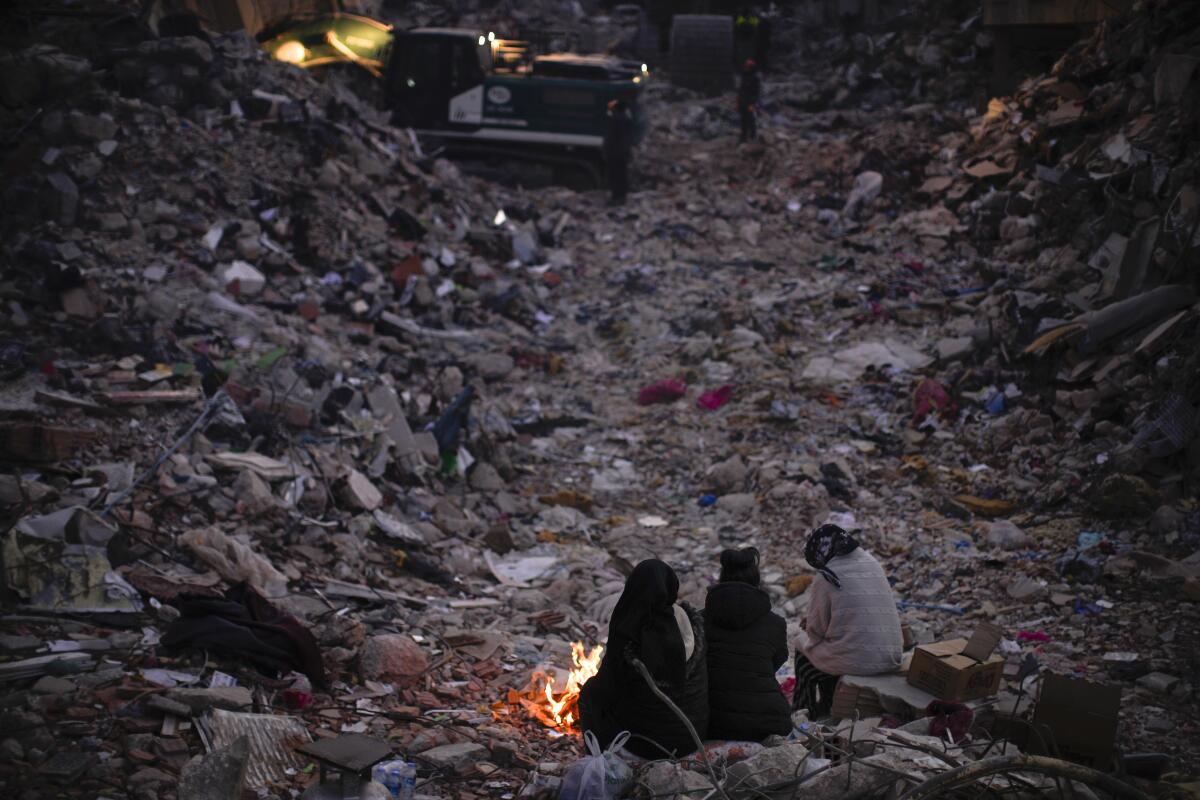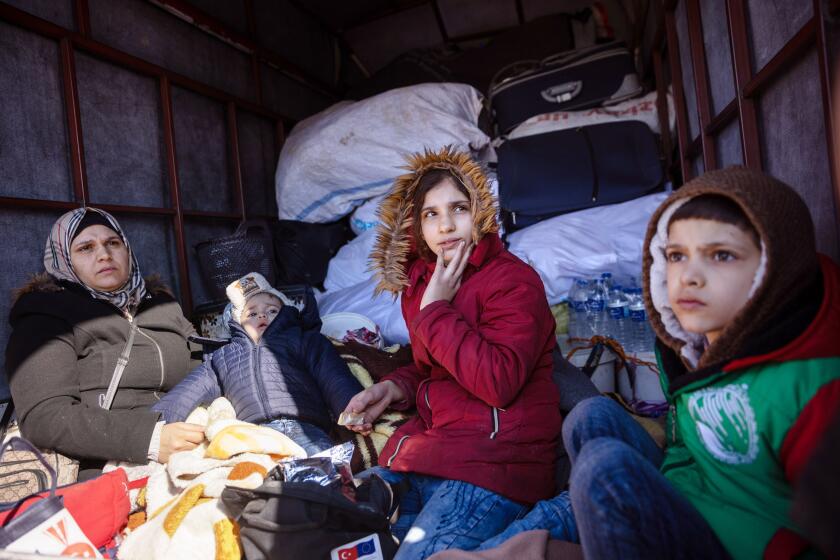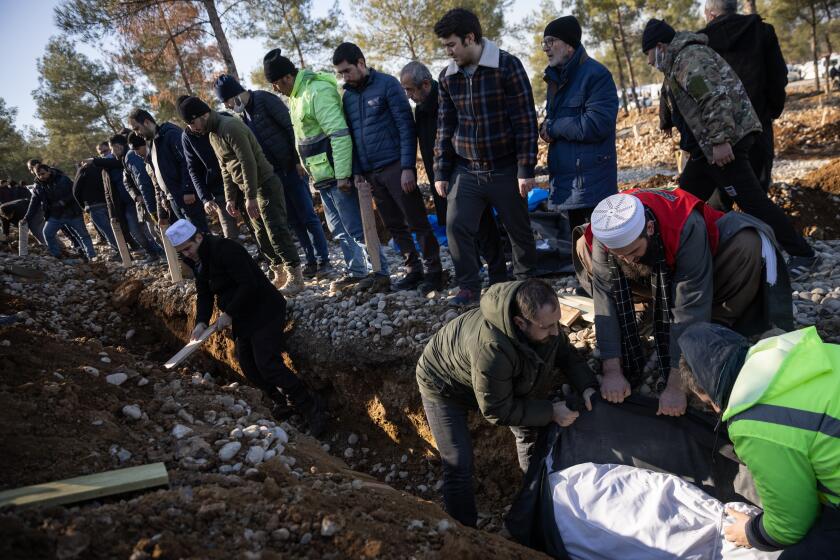A month after quake, multitudes in Turkey and Syria still need shelter, sanitation

ANKARA, Turkey â One month after a powerful earthquake devastated parts of Turkey and Syria, hundreds of thousands of people still need shelter and sanitation, and an appeal for $1 billion to assist survivors is only 10% funded, hampering efforts to tackle the humanitarian crisis, a United Nations official said this week.
The Feb. 6 earthquake and strong aftershocks have killed more than 46,000 people in Turkey, destroyed or damaged around 230,000 buildings and left hundreds of thousands of people homeless â making it the worst disaster in the countryâs modern history. In Syria, the quake killed at least 6,000 people, mainly in the rebel-held northwest, the U.N. estimates.
About 2 million people have been housed in temporary accommodations or evacuated from the earthquake-devastated region, according to the Turkish government. Around 1.5 million people have been settled in tents, and 46,000 are in container houses. Others are living in dormitories and guesthouses, the government said.
âGiven the number of people that have been relocated, given the number of people that have been injured and given the level of the devastation, we do have extensive humanitarian needs now,â Alvaro Rodriguez, the U.N. resident coordinator in Turkey, told the AP on Monday.
âWe have some provinces where up to 25% of the population â weâre talking sometimes half a million people â have relocated. So the challenge we have is, how do we provide food, shelter, water for these communities?â
Since last weekâs earthquake, refugees of Syriaâs civil war living in Turkey have faced growing anger from those who see them as a burden and blight.
Rodriguez said tents are needed even though they are not âthe optimal solutionâ for sheltering people. He reported cases of scabies outbreaks because of poor sanitary conditions.
Last month, the U.N. made a flash appeal for $397.6 million to help Syrian quake victims; just over half was raised. The body made a $1-billion appeal for victims in Turkey to cover emergency needs for three months; about 10% was funded, Rodriguez said.
âThe reality is that if we do not move beyond the roughly 10% that we have, the U.N. and its partners will not be able to meet the humanitarian needs,â he said. âTurkey has been a country that has supported 4 million Syrian refugees over the last few years, and this is an opportunity for the international community to provide the support that Turkey deserves.â
The World Bank has estimated that the earthquake caused $34.2 billion in direct physical damage â the equivalent of 4% of Turkeyâs 2021 gross domestic product. The World Bank said recovery and reconstruction costs will be much higher, and GDP losses associated with economic disruptions will add to the quakeâs cost.
Excavators dig out 200-foot trenches in southern Turkey to bury the bodies of earthquake victims. The death toll rises to more than 20,000.
In Syria, the situation remains dire, with aid groups citing fears of a looming public health crisis because of overcrowding in temporary shelters and the damage
inflicted on crucial infrastructure. The International Committee of the Red Cross said in a statement that Aleppoâs water infrastructure â already aging and damaged by the civil war â had been further damaged by the quake, which âreduced the systemâs efficiency and raised the risk that contaminated water could pollute the supply.â
Water contamination is of particular concern in Syria, which was battling cholera outbreaks before the earthquake.
While the quake generated an initial outpouring of aid, relief organizations cited fears that the worldâs attention would move on quickly, while basic humanitarian needs remain unmet. Meanwhile, political and logistical issues have in some cases blocked aid from reaching those in need.
Amnesty International said that between Feb. 9 and Feb. 22, the Syrian government âblocked at least 100 trucks carrying essential aid such as food, medical supplies and tents from entering Kurdish-majority neighborhoods in Aleppo,â while Turkish-backed rebel groups in northwest Syria blocked at least 30 aid trucks sent by rival Kurdish groups from entering Turkish-controlled Afrin.
âEven in this moment of desperation, the Syrian government and armed opposition groups have pandered to political considerations and taken advantage of peopleâs misery to advance their own agendas,â Aya Majzoub, Amnesty Internationalâs deputy director for the Middle East and North Africa, said in a statement.
Associated Press writer Abby Sewell in Beirut contributed to this report.
More to Read
Sign up for Essential California
The most important California stories and recommendations in your inbox every morning.
You may occasionally receive promotional content from the Los Angeles Times.












